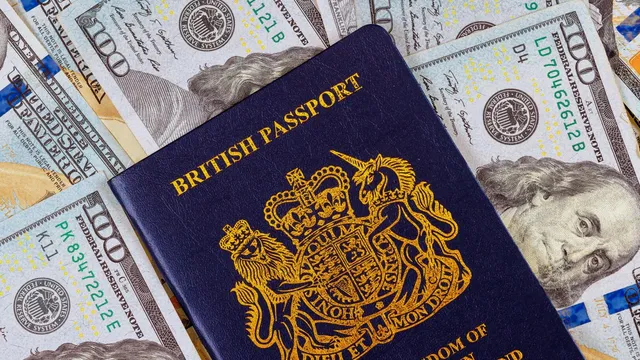
Norwegian officials wrongly deport British citizen over passport validity
2025-04-09 11:43- A British traveller was deported from Norway in February 2025 due to wrong interpretations of passport validity rules.
- Both Norway and Denmark have exhibited similar misinterpretations regarding passport systems affecting tourists.
- Border control officials must adhere to established rules to avoid disrupting travelers' rights and causing unnecessary distress.
Express your sentiment!
Insights
In February 2025, a British traveller arrived at Oslo Airport for a planned one-week holiday with friends. Although her UK passport was valid for entry into Norway, border officials incorrectly claimed her passport was only valid until its ten-year anniversary, resulting in her being detained and deported back to the UK. Such misinterpretations of passport validity have also been observed in Denmark, where law enforcement held similar views about passport expiration. The inconsistencies in interpreting Schengen passport validity rules have prompted both Norwegian and Danish officials to erroneously restrict properly documented British tourists' travel rights, creating confusion and distress for travelers. The issue was highlighted in a separate incident where a family traveling with DFDS Ferries was also turned away due to a misunderstanding based on similar erroneous interpretations of passport regulations, further illustrating the ongoing problem of misapplication of post-Brexit travel rules. These incidents have led to formal complaints and discussions about the necessity of consistent enforcement of travel regulations across border control agencies, as well as how such misunderstandings can disrupt travel plans and infringe on rights of tourists.
Contexts
The Schengen Area, comprising 26 European countries, has established specific passport validity rules that travelers must adhere to in order to enter and stay within this region. Understanding these regulations is crucial for ensuring compliance and avoiding complications during travel. One of the primary requirements is that a passport must be valid for at least three months beyond the intended date of departure from the Schengen Area. Additionally, the passport should have been issued within the last ten years, ensuring it meets the standard for contemporary identification measures. These rules are in place to enhance security and streamline entry procedures, reflecting the Schengen Agreement's commitment to maintaining a cohesive and efficient border control system. Furthermore, it is essential to note that travelers must possess a passport that remains valid throughout their entire stay. This stipulation means that if a passport expires during a traveler’s time in the Schengen Area, they could potentially face legal issues or difficulties when returning home. Each country within the Schengen Area may have additional entry requirements based on a traveler’s nationality or specific agreements, underlining the importance of checking individual country regulations before traveling. Another aspect to consider is the differentiation between tourist and business visas. While the general passport validity rules apply to all travelers entering the Schengen Area, those holding long-stay or residence permits must adhere to specific regulations that relate to their visa type. These can include additional documentation proving the purpose of their visit, which could change depending on the particular agreements enacted with a traveler’s home country. Therefore, travelers should not only focus on passport validity but also be aware of the various visa requirements that may apply based on their circumstances. To conclude, the Schengen passport validity requirements are straightforward but critical for a smooth entry experience. By ensuring their passport is valid for at least three months after their planned departure from the Schengen Area and issued within the last ten years, travelers can avoid unnecessary inconveniences. Moreover, awareness of individual country regulations and additional documentation for specific visa types is paramount for seamless travel. Adherence to these guidelines contributes to the overall security and functionality of the Schengen Area, facilitating the free movement of individuals while maintaining essential border controls.